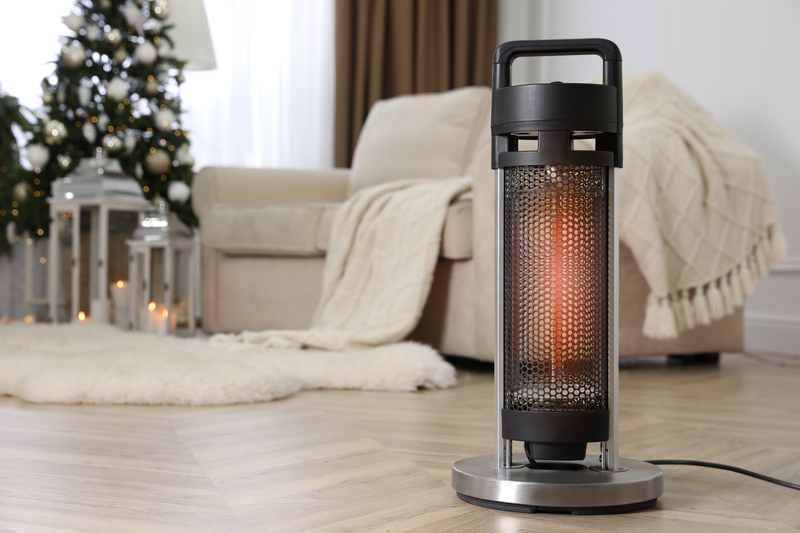This article is your complete guide to how much energy an electric heater uses. As temperatures drop, you might find yourself reaching into storage and pulling out your trusty space heater to warm your space. Typically, if you’re running a space heater, it uses about 1500 watts per hour on average. In comparison, a refrigerator uses about 150 watts per hour, so you can see that it is a large chunk of energy output for your heater.
That’s why we’ve created this article to answer the question, “Do space heaters use a lot of electricity?” So if you want to learn about space heater costs, energy usage, and more, keep reading!
We hope you find this post helpful and if you are looking for different ways to become more energy efficient be sure to check out our energy savings calculator!
The Energy Professor Electricity Rate Check Tool
How Much Energy Does a Space Heater Use 2024?
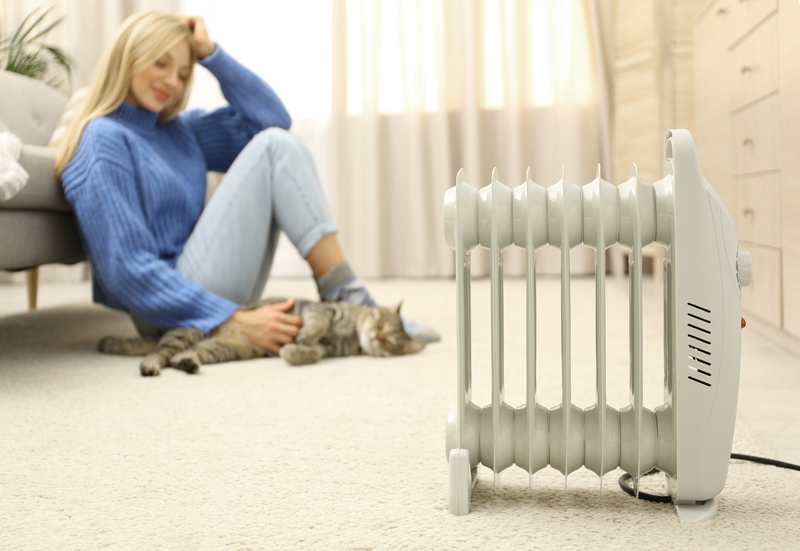
Let’s get into “how much electricity does a space heater use?” The average space heater uses about 1500 watts per hour when running to heat a small home or business. In comparison to other appliances, that is a lot of energy usage for one appliance although it is working hard to heat a space. With that being said, depending on how you heat your house with central heating you could be producing anywhere from 400 to 40,000 watts of electric power. Central heating that uses electric heating systems typically uses the most electricity and is on the higher end, while central gas heat is on the lower.
So, while 1500 watts per hour seems steep, just know comparatively how high or low it can be. You should also know that it is per space heater, so if you have two or three or more – it’ll be another 1500 watts per heater.
Related post: Energy-Efficient Space Heaters
How Many Watts Does a Space Heater Use?
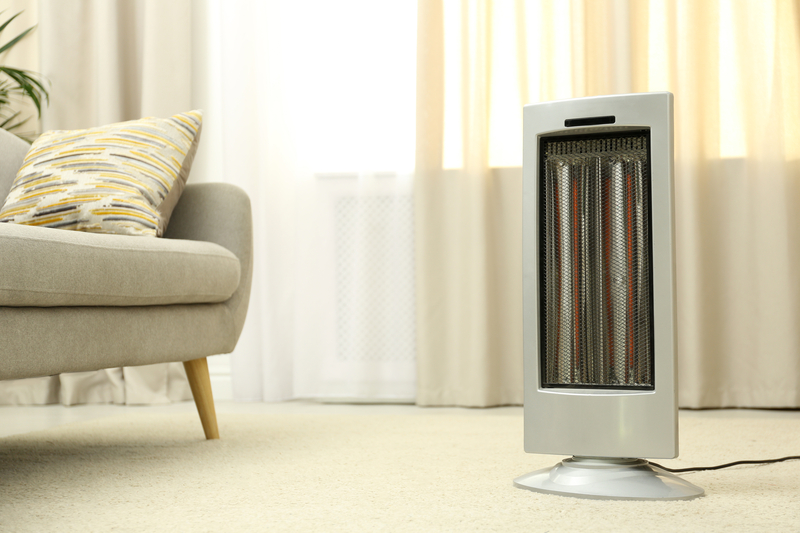
The average wattage of a space heater uses 1500 watts per hour to heat a house, even though there is a rather large variety. Just like any other appliance, the cost to run a space heater is determined by the size, and the amount of energy, or, watts, it pulls. Luckily, space heater manufacturers make it rather easy to see how many watts your space heater will use per hour with a simple rule of thumb.
What is the best space heater for energy efficiency for room size?
If you are living in a space that might require a smaller or larger space heater, the wattage will differ and the cost to run it will change. So, with that being said, we’ve compiled a list of room sizes and the amount of energy you would need to heat it. You will be able to see the small space heater wattage as well as larger spaces. It looks like for every 50 square feet of room space, you’ll need 500 watts of energy to heat!
- 100 sq. ft – 1,000 watt space heater size
- 150 sq. ft. (average) – 1,500 watt space heater
- 200 sq. ft. – 2,000 watt space heater
- 250 sq. ft. – 2,500 watt space heater
- 300 sq. ft. – 3,000 watt space heater
- 350 sq. ft. – 3,500 watt space heater
- 400 sq. ft. – 40000 watt space heater
While this list is a good guide to reference for your home, other factors play into space heater electricity costs. The height of your ceiling is a big factor in the total size of space that needs to be heated, and our average is based on the standard 8-foot ceiling. If your house is poorly insulated with older windows and doors, you will also need to run your space heater for longer to warm up your space.
Related post: Complete Guide on Light Bulb Recycling
How Many Amps Does a Space Heater Use?
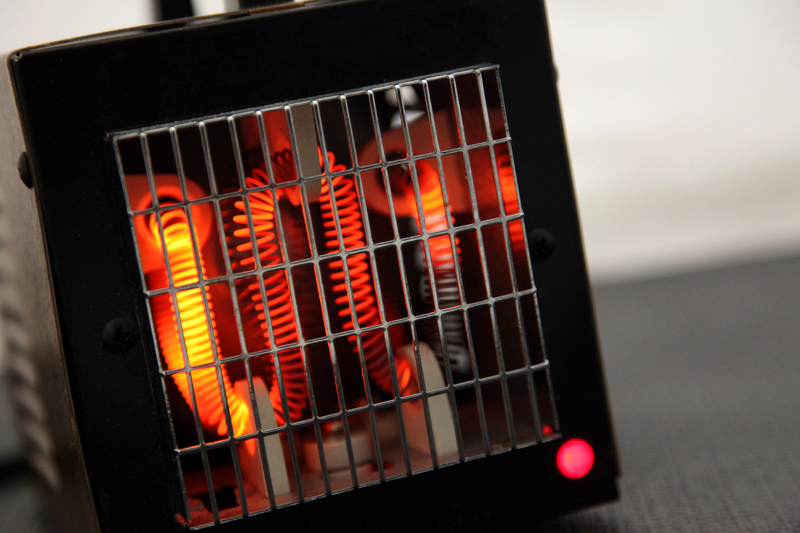
If you are looking into purchasing a space heater and want to know just how many amps does a space heater use, you can calculate it with the formula below. If you want to figure out space heater amps, it will depend on the wattage and voltage of the electrical circuit it is plugged into. There is a formula you can use to figure out how many amps for your heater, which is simple to use.
Here’s the formula to calculate how many amps is a space heater.
Current (in amps) = Wattage of heater / Voltage of electrical circuit
For example, if you have a 1,500-watt space heater that is plugged into a 120-volt electrical outlet, it will draw approximately 12.5 amps of current (1,500 watts / 120 volts = 12.5 amps).
It is important to note that this is just an estimate, and the actual current draw of a space heater may vary based on its design and other factors. It is always a good idea to consult with a professional or refer to the manufacturer’s recommendations for specific information on the current draw of a space heater.
Related post: How Much Power Does a TV Use?
What is the Most Energy Efficient Space Heater 2024?
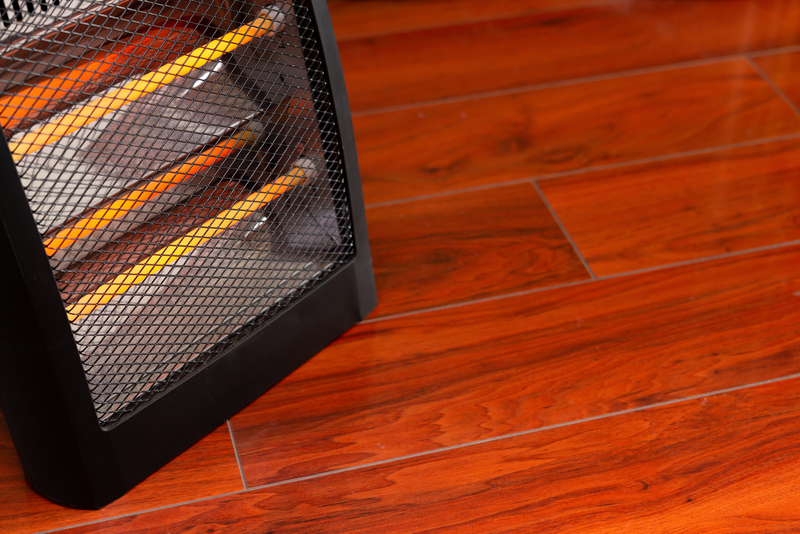
The most efficient space heater is one that can convert the most amount of energy (fuel or electricity) into heat with the least amount of waste. Now that EnergyStar is a common brand, their appliances tend to run the most efficiently and are what we always recommend. The cost to run a space heater will be significantly affected by the age and model of your space heater, so keep that in mind. It’s what can separate you from a few hundred dollars a year to thousands.
Here are some factors to consider when looking for an efficient space heater:
- Fuel type: Some fuel types are more efficient than others. For example, propane and natural gas tend to be more efficient than electricity when it comes to heating.
- Heat output: Look for a space heater that is appropriately sized for the area you want to heat. A heater that is too small will have to work harder and be less efficient, while a heater that is too large will be less efficient due to the excess heat it produces.
- Energy-saving features: Some space heaters come with features such as programmable thermostats, energy-saving modes, and automatic shut-off to help reduce energy consumption.
- Size and design: Larger space heaters tend to be more efficient than smaller ones because they have a greater surface area for heat transfer. Some designs, such as oil-filled radiators, are also more efficient because they have a lower surface temperature and use convection to circulate heat.
It is always a good idea to consult with a professional or refer to the manufacturer’s recommendations when selecting a space heater to ensure that you are getting the most efficient model for your needs.
Space Heater Cost 2024 FAQ

Q: How many amps does a 1500 watt heater draw?
A: The average space heater at 1500 watts uses upwards of 12.5 amps while running on high. If you run a 1500-watt 240V heater, you will only draw about 6.3 amps. A 1500-watt space heater can draw anywhere between 6 and 12.5 amps depending on your situation!
Q: How much does a space heater cost to run?
A: It will cost the average space heater user about $60 per month to run their space heater for about 8 hours a day. While the cost of energy is different throughout the country, using the average cost of energy in the US at 16 cents per kWh and the average space heater size, so you can see how that number can be very different. If you have a different-sized space heater, more than one, or a house with high ceilings, it can be a lot more.
Q: Do space heaters use more energy than central heat?
A: Heating your home with space heaters will most likely cost you more than central heating over time. Space heaters themselves are more energy efficient, but, putting a space heater in every single room will add up and cost you big time. Not to mention, having multiple space heaters running in every room of your house isn’t practical or safe.
Q: Is 1500 watts enough to heat a room?
A: Yes, 1500 watts is enough to heat a medium-sized room. If you’re looking to heat a bedroom, office, kitchen, or living room, your 1500 space heater can handle about 150 sq. ft. The average space heater is 1500 watts, so as long as your room is average-sized you will be warm!
Q: How many space heaters can I run?
A: On regular US 120V wall outlets you can run two space heaters at once on reduced heating settings only (80% or less). On 220V-240V (eg. UK, Europe) power outlets you can run two space heaters on full power.
Do you Need Cheaper Electricity?
If you’ve taken the time to understand the information on your bill and discovered you’re paying more than you’d like for your electricity, have you looked around for a cheaper deal? The Energy Professor has a wealth of information on ways to save on your utilities, including details of top deals that could significantly reduce your monthly or quarterly electricity bills.
We hope you found this article helpful! If you are looking for ways to increase energy efficiency and sustainability in your home be sure to take a look at all of the latest renewable energy options in your area. The Energy Professor helps residential and small business owners find qualified energy suppliers in New York, New Jersey, Pennsylvania, Texas, Ohio, Maryland, Illinois, and Massachusetts

